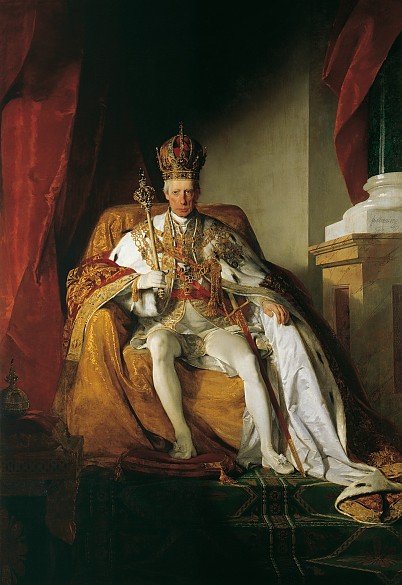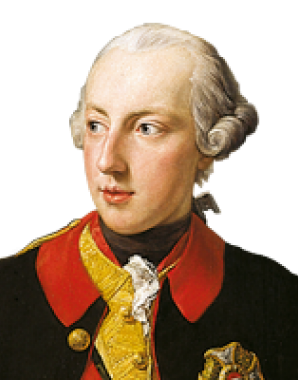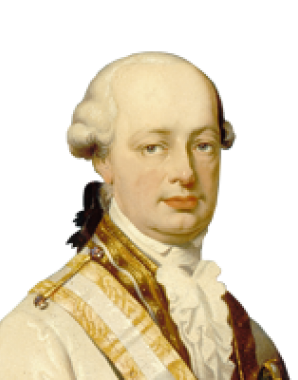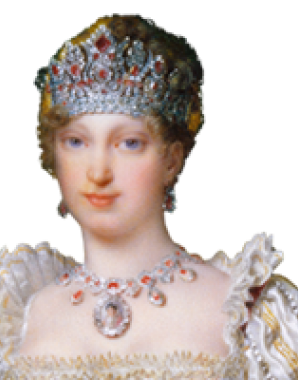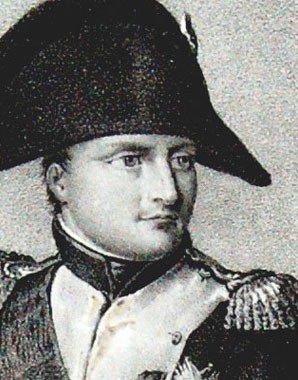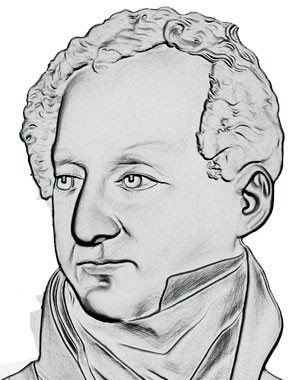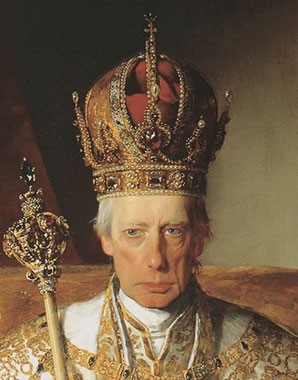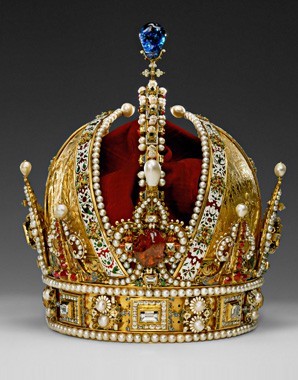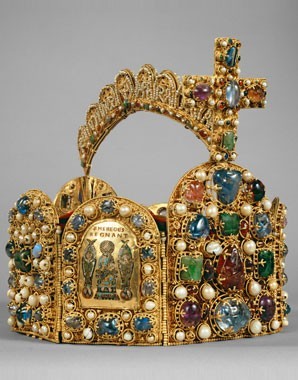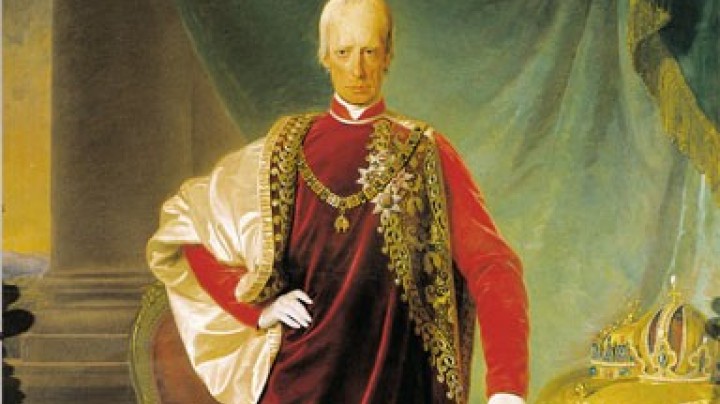Back to square one: Franz II (I)
Leopold’s son succeeded in going down in history as ‘good Emperor Franz’.
Joseph II in a letter of 1789 on his nephew the future Emperor FranzArchduke Franz is neither ignorant nor unindustrious, his judgement is cold and slow but sound, he is indifferent to all that we understand by pleasure and entertainment, and he is healthy, even strong. While he will never possess what we call the graces of mind and body, in days to come he will show himself to have a head that is well organized for business and strength of character to boot.
Franz II (I) is described by the historian Adam Wandruszka as having been a ‘narrow-minded, dry, reserved and in no respect particularly talented individual.’ The explanation for his character can be seen in terms of the excessive education and tuition that he as future ruler received from his uncle Emperor Joseph II.
Having had to assume the reins of government after the unexpected death of his father Leopold II, Franz found himself confronted by the phenomenon that dominated European political life in the decades before and after 1800, namely, the French Revolution. In the turmoil of the wars following the Revolution and in all the conflicts with Napoleon, the mast to which Franz nailed his colours was the alleged special position of the Habsburg dynasty. Nevertheless, he broke with the pomp and majesty of the ceremonial Baroque notion of how a ruler should be, ruling instead as a dry bureaucrat and developing a patriarchal image as the ‘good Emperor Franz’ who constantly had the interests of his people at heart. The impression he deliberately created of being close to the people accorded with the spirit of a new era marked by the rise of the middle classes, and was promoted by such things as his simple, quasi-bourgeois lifestyle, his exemplary family life, his cultivation of Viennese dialect, and the innumerable audiences he gave during his reign.
When Napoleon had himself crowned Emperor of the French in 1804, Franz felt compelled to follow suit – after all, ‘reaction’ in the face of revolutionary France was the motto of the day. Franz founded the hereditary empire of Austria and became its first emperor, using a museum piece as official insignia: the private crown of Rudolf II. In this office Franz was forearmed with a substitute for the loss he was to incur two years later in 1806, when under pressure from Napoleon he was compelled to lay down the crown of the Holy Roman Empire and dissolve an institution that had existed since early medieval times. Curiously enough, the war against the Emperor of the French did not prevent Franz, at the instigation of the future strong man of Austria Prince Metternich, from marrying off his daughter Marie Louise to none other than Napoleon himself.


